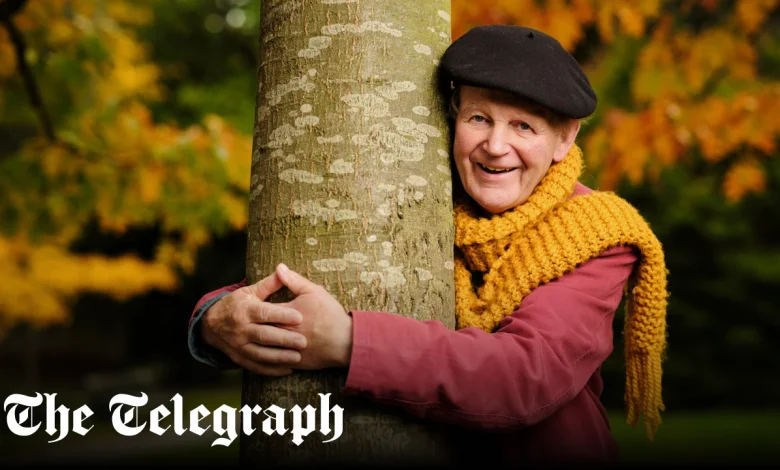Michael Morpurgo: ‘I did a year at Sandhurst, mostly because I looked good in a uniform’

“The great thing about the countryside is that there’s time to get to know the people around you,” Morpurgo explains. “You’re walking along, they’re walking their dog, you hear a blackbird singing and suddenly you’re talking about blackbirds. That’s how people come together. If you’re constantly busy on your phone, you miss that.
“Feeling like you belong is vital at every stage of your life and it takes time for that weaving between people to happen,” he says. “If you’re putting that time into your phone, that becomes what you’re relating to all the time. I don’t think the consequences of that haven’t been thought through by anyone except the people making money from it.”
The snackable, quickfire direction of the internet has stripped us of our ability to think deeply about people. Relearning the skill of doing so has the capacity to enrich us, Morpurgo thinks.
“At school I was taught by a classicist called Paul Pollock,” he recalls. “He was vaguely ridiculous to look at – a man on his own, eccentric, scholarly but unapproachable. We mocked him behind his back, the same way people might on the internet today.
“When he died, I happened to see an obituary of him. He’d been a Jewish boy on the last train out of Prague, organised by Nicholas Winton,” Morpurgo says. “He arrived in Britain aged seven and was adopted by a vicar in Kent. He went to Oxford, loved school so much he came back to teach, and when he retired he became the archivist. We never knew anything about the devotion he had to the school. That’s the type of thing where, if you slow down, you discover that there’s great depth in the unlikeliest people.”
Be true to yourself and appreciate what you have
Given that Morpurgo’s latest book addresses the theme of getting older, putting it together led the author to wonder if he’d changed over the years.
“My brother says I haven’t changed a bit,” Morpurgo says. “He says I’m funnier than I was, that I’ve relaxed a bit, but I think the way I’ve done that is to learn to be truer to myself.”
Morpurgo highlights an early mistake of his: joining the army at 18. “I did a year at Sandhurst because I thought I wanted to be a soldier, mostly because I looked good in a uniform, I liked rugby, and wanted to travel the world. That’s how deeply I thought about it,” he laughs.
It was Clare, the woman who’d become his wife the following year, who asked why, and convinced him to leave the military. “From there I went to university and got the worst degree imaginable (Morpurgo holds a third-class degree from King’s College London in English, French and Philosophy). I was a terrible student – my excuse was that I was married by then, which is no excuse at all.”
Morpurgo found his vocation while teaching. “I got to know myself, I had the opportunity to see myself doing something useful and that’s something everyone should experience,” he says. “Even now when I write stories, I’m doing a bit of teaching. I hope it doesn’t feel like it, but I don’t think you can disguise it once you’ve been a teacher.”
Ultimately, Morpurgo says he’s had a lucky life, and learning to appreciate what he has has been the key to ageing gracefully.
“I’ve had stuff, everyone’s had stuff,” he admits. “But you learn strength when you’re younger, to put up with it and go on with the next day. You need allies. You need someone to hold your hand. Harder to do on your own, I think.”
Although he said he doesn’t like to give advice, Morpurgo does have one final thought on his 82 years well lived: “don’t be in such a hurry, stand and stare, and hold people’s hands.”
Funny Thing, Getting Older is published by Hodder at £20. To order your copy for £16.99, call 0330 173 0523 or visit Telegraph Books





